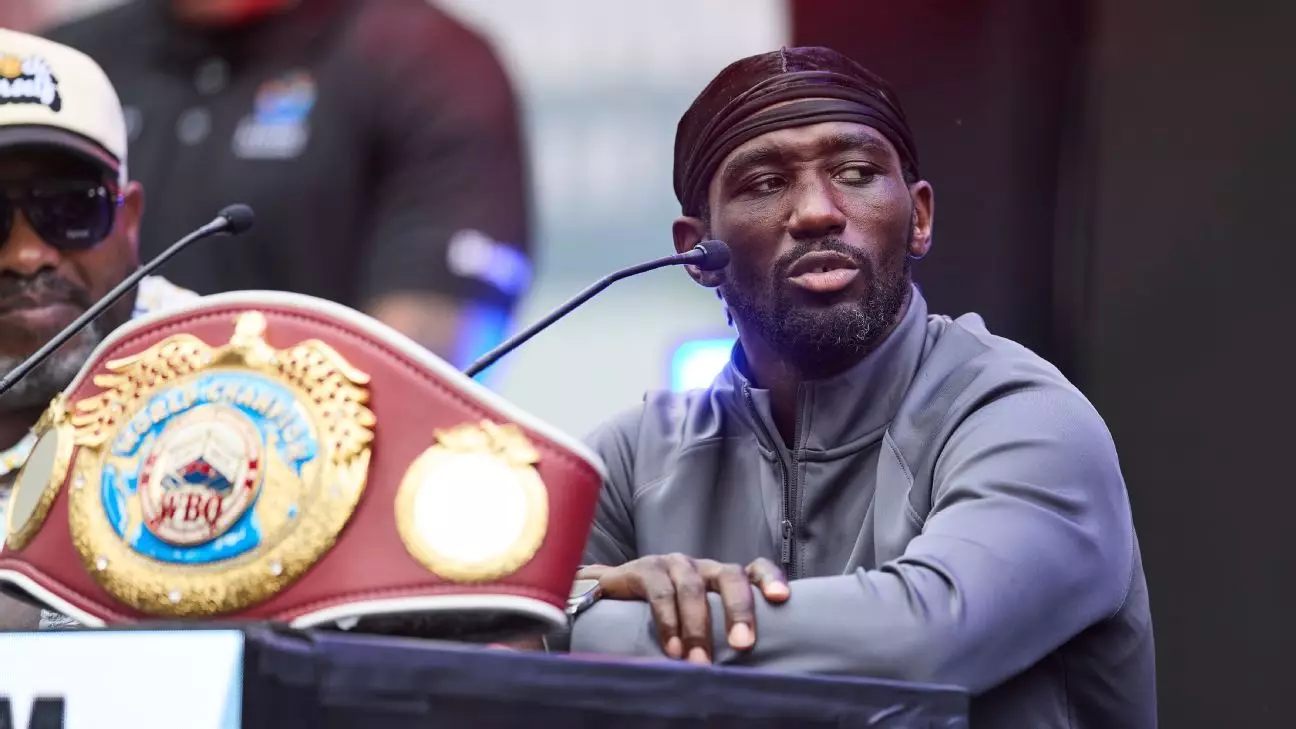In the realm of combat sports, the clash between boxing and mixed martial arts (MMA) has sparked numerous discussions, debates, and occasionally, crossover events. Recently, a major talking point in this ongoing dialogue emerged when Terence Crawford, the revered boxing champion, announced his rejection of a lucrative fight deal involving UFC icon Conor McGregor. This decision underscores the distinct lines separating two vastly different sports, each with its own set of rules, skill sets, and fan bases.
The crux of Crawford’s decision lies in his firm commitment to boxing. As an established four-division champion currently regarded as one of the finest pound-for-pound boxers, Crawford’s inclination to remain within the squared circle rather than venturing into the octagonal cage speaks volumes about his dedication to his craft. Crawford, during his interview, expressed his reservations about mixing sports: “Man, I’m not getting in no f—ing Octagon with you so you can be kicking and elbowing me!” This statement encapsulates not only Crawford’s perspective but resonates with many traditional boxing fans who hold a similar disdain for the unpredictable nature of MMA.
Crawford’s response indicates a broader sentiment within boxing, which has struggled to accept the legitimacy and complexity of MMA. It raises the question: To what extent should athletes transition between sports? The answer may vary, but Crawford’s answer highlights his respect for boxing as a pure sport, free from the multifaceted chaos that defines MMA.
Conversely, McGregor’s willingness to entertain the idea of competing in both boxing and MMA reflects his own experience. The Irish fighter’s 2017 bout against Floyd Mayweather set a precedent in the sport by manifesting the potential crossover fights have in generating massive financial windfalls. Despite his loss, McGregor reportedly pocketed over $100 million, showcasing the lucrative nature of such matchups.
In light of Crawford’s rejection, it’s evident that McGregor still harbors ambitions for crossover success. He explained his attempt to entice Crawford, outlining the staggering financial implications of their potential engagements while acknowledging Crawford’s apprehensions. “You got to respect that,” McGregor stated calmly, emphasizing the necessity of mutual respect in professional sports.
While McGregor has unhindered experience in both domains, not every fighter can confidently compete in such diverse spaces. Crawford’s decision not to engage in MMA can be seen as an assertion of identity—being a boxer first and foremost, with a clear boundary drawn on what he perceives as a threat to his skills and safety.
The potential financial stakes of a dual-fight agreement reveal the economic dynamics at play in modern combat sports. Crawford mentioned that they could have made “a s— ton of money,” indicating the piles of cash that await fighters willing to abandon sporting traditions for the promise of financial rewards. Herein lies the challenge: as sports evolve, so do the motivations and strategies of its athletes. The allure of large paychecks often supercedes personal safety or discipline commitment.
Crawford’s interactions with McGregor illuminate an underlying tension in combat sports: the divergence between traditionalism and commercialization. As more athletes consider crossing over into dissimilar roles, the boxing and MMA communities might need to reevaluate standards for determining legitimate competition.
As their respective careers progress, both Crawford and McGregor seem poised to focus on the fights that matter most to them individually. McGregor, currently on the mend from an injury, is expected to return to the Octagon, where MMA’s intense training regimens and unpredictable stylistic contrasts await him. Meanwhile, Crawford’s focus on facing Canelo Alvarez—a highly anticipated clash—remains predominant in his mind.
Their recent exchange reflects a cautious understanding of their unique terrains: boxing and MMA. Yet in their hoped-for encounters, one can muse on what might have been had they crossed the divide. With millions on the line and legacies at stake, the respective refusals to step outside their boundaries could signify not just strategic decisions but also the preservation of the disciplines they embody.

